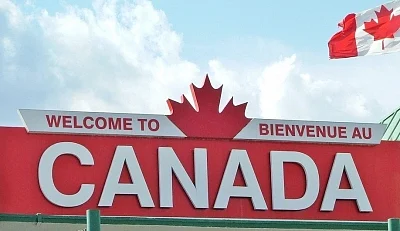While the Canadian electorate is mostly made up of Liberal, Conservative, Green and New Democrat party supporters, it also includes people who are seeking a new direction for Canadian politics — one that promises to be “for the people.” And some of these people are part of far right groups who are calling for a new populist movement.
Research shows that globally, the far right calls for an authoritarian populist government. This is a drastic step away from traditional conservative governments on the right of the political spectrum.
Right-wing populist governments often see themselves as an alternative to the political elitism they envision resides on both the right and the left.
However, they differentiate themselves by providing oversimplified and often divisive solutions to social problems such as income inequality. And this is cause for concern as far right groups and far right violence have been increasing in Canada over the past decade.
Given these trends, could right-wing populism be a cause for concern in Canada?
Populism Worldwide
There has been a increase in in populist parties and sentiments in North America, Europe and Latin America over the last six years.
Populism can be explained using multiple different approaches. Some scholars argue that ideologically, populist governments differentiate between “the people” from “the elite”.
This approach to populism also emphasizes that populism is usually paired with another ideology that defines “the people.” An example of an ideology often paired with right-wing populism is nativism, the belief in exclusionary policies protecting individuals born in a country over foreign born people.
While populist effects are complex, they can be negative. For example, appealing only to the majority can have detrimental consequences on minority rights. This becomes even more dangerous when appeals to the majority limit “the people” to an ethnic or racial majority.
Populism in Canada – Past and Present
There have been various iterations of political parties in Canada that adhered to right-wing populism — meaning that populist sentiments, and a call to populist governance, is not new in Canada.
In 1987, the Reform party, headed by Preston Manning, gained relative success with a populist agenda, calling for a complete revision to the political system, a cap on immigration and tax cuts. However, after 2000, the party largely faded due to lack of support.
More recently, the People’s Party of Canada (PPC), headed by former Conservative MP Maxime Bernier, has taken up the populist torch.
After his defeat to Andrew Scheer to become leader of the Conservative party, Bernier founded the PPC as a more right-wing alternative to the Conservatives. Making its debut in 2019 fall election, the PPC is rife with anti-immigration sentiments — their platform promises a decrease in immigration, a closed-border policy which vilifies refugees and adheres to unclear “Canadian values” and “Canadian identity.”
In the 2019 federal election, the PPC was not able to obtain any seats in the House of Commons, despite obtaining 1.6 percent of the popular vote. This time around, Bernier and the PPC have vowed to gain more representation in the House of Commons — Bernier himself estimates he’ll get about four to five per cent of the popular vote.
He claims to speak for the average Canadian by emphasizing “common sense” politics, motioning to a populist rhetoric. The PPC also overtly self-identifies as a populist party.
In July, Derek Sloan, a former Conservative MP who was kicked out of the party for taking a political donation from a white supremacist, announced he too was creating a new political party.
Sloan said he hoped his new True North party would inspire a “movement” of political activism against the Conservative party. Sloan has also claimed his party will help those who feel “disenfranchised” by the current political climate.
The language of listening to a disillusioned and forgotten people is a symptom of populist discourse. But Sloan is still struggling to bring this party to fruition.
While right-wing populist parties are not new in Canada, the presence of the PPC and the True North party speaks to a growing desire for these parties. This is not to mention other populist far right parties that have appeared in Canadian provinces over the past several years — including the Atlantica party in Nova Scotia and The Wildrose party in Alberta.
Cause For Concern?
While some would assume members of the far right would vote for conservative parties, Canadian far right groups may be taking their votes to more populist groups, creating a demand for these parties.
While this does not mean parties claiming to be populist, like Bernier’s PPC, will get significant votes in Monday’s election, it does call for much needed attention to party platforms and motivations that make exclusionary claims. Although right-wing populist candidates did not succeed in 2019, the growing trend toward an increase in far right groups — and their taste toward populism — ensures that these parties are not going away. The history of right-wing populist parties fading into obscurity and then reappearing also suggests that these groups will continue.
Populist parties appeal to a dangerous anti-immigration sentiment characteristic of the far right — surely a cause for concern among all Canadians.
(Kayla Preston is a PhD student at the Department of Sociology in University of Toronto. This is an opinion piece and the views expressed above are the author’s own. The Quint neither endorses nor is responsible for the same.)
(This article was originally published on The Conversation. Read the original article here.)
(At The Quint, we question everything. Play an active role in shaping our journalism by becoming a member today.)



